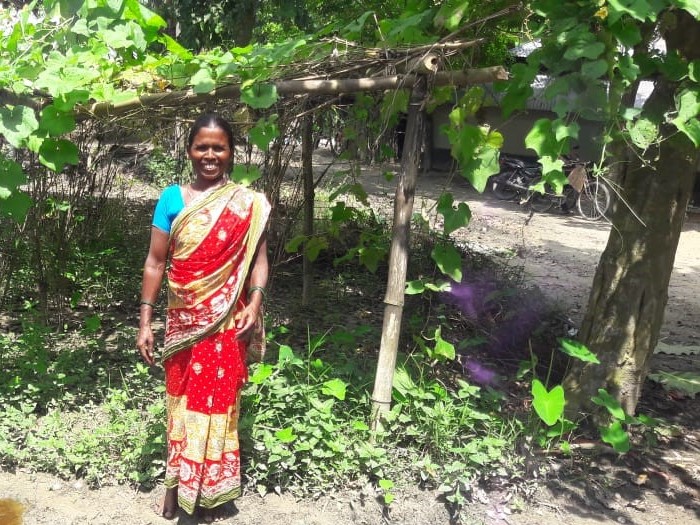
Breaking the Cycle of Poverty at Last
Bhangi’s household includes three generations –she and her husband, their son and daughter-in-law, and two grandsons. Their tiny plot of land, less than a half an acre, could not sustain the family’s nutritional needs. When she could, Bhangi worked as a daily wage laborer at a local landowner’s farm to help the family get by, but such seasonal work meant the money was not constant. She would sometimes take out small loans with a local micro-finance company, but realized this was not a sustainable approach.
Then Bhangi decided to take a chance on getting a bigger loan so she could lease some agricultural land to grow rice and sell it. Although she had good harvests, the effort wasn’t profitable because of low market prices and the high costs of seed, fertilizer and the land lease. She felt like she was stuck in the same situation as always, but was now burdened with an even larger debt to repay.
When the staff of local partner BICWS came to her village for an orientation meeting with farmers about vegetable production, she saw an opportunity to break out of this cycle of debt. The program allowed her to use a small plot of leased land, for which she would pay an increasing percentage of the rent over the course of three years while learning improved methods for vegetable growing. Ever hopeful, she decided to join in.
Bhangi learned everything she could about the environmentally friendly techniques and put them into practice on her small plot. Imagine the deep satisfaction and relief she felt when she earned a profit and was able to pay off her loan!
Next year, she plans on expanding her operations. For now, Bhangi had this message for supporters: “I heartily thank the program for offering all these learning opportunities. You have helped my increase my income and improve my family’s situation.”
Nepal Jahada Program
Led by Mennonite Central Committee and Local Partner BICWS
